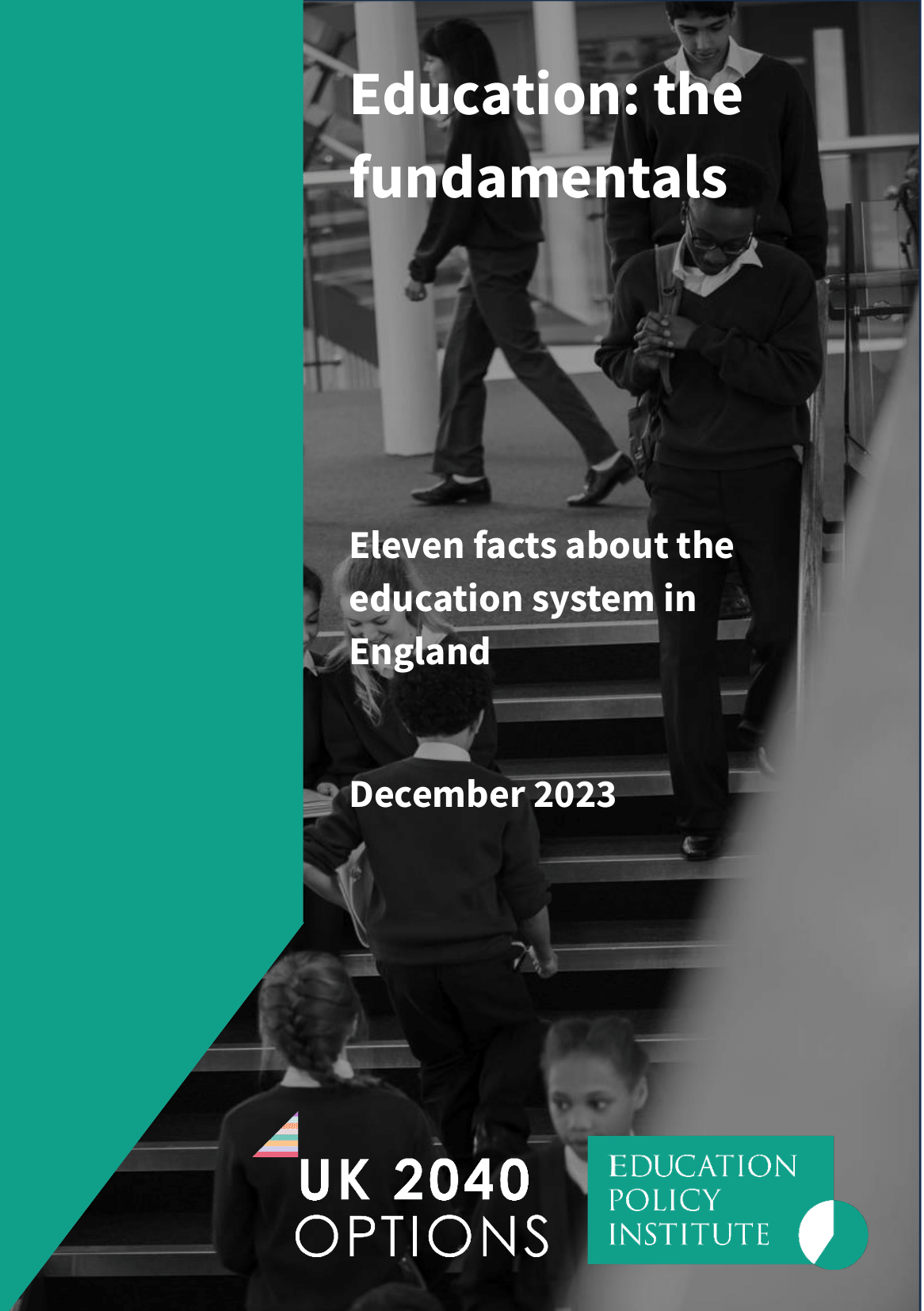A major new report on education in England is published today by UK 2040 Options, led by Nesta, and The Education Policy Institute.
The report combines data, analysis and insights from over 75 education experts on the education challenges facing the next government and possible solutions to improve outcomes.
The report shows that:
- All sectors of the education system are facing a workforce crisis. In schools, only 69% of those who qualified 5 years ago are still teaching, and 15% of that cohort left in their first year.
- The pupil population in England is set to decline significantly due to low birth rates. The state school population currently stands at 7.93 million children, and this will fall by around 800,000 by 2032.
- The number of pupils with an education, health and care plan for more complex special educational needs and disabilities has increased by around 50% in just five years – but funding has not caught up with the level of need and is based (in part) on historic data.
- Only 5% of primary schools reached the Government’s target of 90% of pupils reaching the expected standard in key stage 2 reading, writing and mathematics in 2019.
- Pupils from disadvantaged backgrounds experience an attainment gap (relative to their more affluent peers) equivalent to 19 months of learning by the time they sit their GCSEs. Two fifths of this gap has appeared by the age of 5.
- Absence from education is now one of the most pressing issues facing England’s education system – persistent absence (missing more than 10% of sessions) has increased from 13% to 24%.
- Closing the gap between skill supply and employer demand could increase national productivity by 5% – 42% of vacancies in manufacturing and 52% in construction are due to skill shortages.
The report, which follows UK 2040 Options publications on inequality and wealth, economic growth, health and tax, also includes evidence of progress. England recently came fourth in the world for primary school reading proficiency and well above average in maths and science in Years 5 and 9.
But the report also reveals a system that is struggling. Thousands of children start school each year without basic skills, the disadvantage gap is growing, and education at every level is experiencing a chronic recruitment and retention challenge.
Over 75 subject experts from across a range of sectors took part in the project. There was wide agreement about the need to grapple seriously with the workforce crisis across all parts of the system, and the group put forward suggestions for how this could be achieved while continuing to improve the quality of education provision.
More broadly the group proposed policies to:
- Support the growing number of children with special education needs and disabilities and rebuild parents’ trust in the system;
- Address challenges inside and outside the school gates to improve educational outcomes, including lifting families out of poverty and increasing targeted funding for disadvantaged pupils;
- Make the skills system more equitable, higher quality and tailored to the needs of the economy.
Alex Burns, Director of UK 2040 Options, said: “Education has been less prominent than other areas in recent policy debate – we feel a long way away from “education, education, education”. But if we are to be serious about improving people’s lives and boosting the economy we will need to make sure that the education system is thriving. Whilst there are clear areas of progress, this report demonstrates the scale of the challenge for the future in areas like workforce, the disadvantage gap and support for children with special educational needs.”
Jon Andrews, Head of Analysis at the Education Policy Institute, said: “Whatever the outcome of the next election, it is clear there is much to do to get education back on track following a hugely disruptive pandemic and a decade dominated by funding cuts. A focus on the early years, greater funding that is targeted at the areas in need of it the most, and a plan to ease the recruitment and retention challenges facing schools must form cornerstones of any new government’s education strategy.”
You can read the report in full here.

About UK 2040 Options
UK 2040 Options is a policy project led by Nesta that seeks to address the defining
issues facing the country, from tax and economic growth to health and education. It
draws on a range of experts to assess the policy landscape, explore some of the most
fertile areas in more depth, test and interrogate ideas and bring fresh angles and
insights to the choices that policymakers will need to confront, make and
implement.
About Nesta
We are Nesta. The UK’s innovation agency for social good. We design, test and scale
new solutions to society’s biggest problems, changing millions of lives for the
better. This report was produced in partnership with Nesta, as part of UK 2040 Options.
![]()

